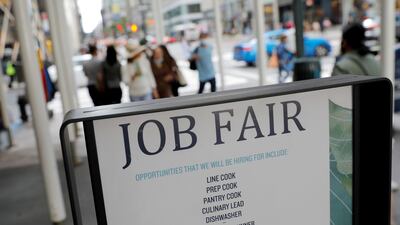The Covid-19 pandemic provided many of us with the opportunity to rethink our career options. In fact, in the US many have quit their jobs at an unprecedented rate over the past year. Some four million Americans quit their jobs last July and a record-high 4.4. million people or 3 per cent of the working population, left their jobs last September, according to the US Bureau of Statistics. Reasons behind their move include the search for a better pay, the pandemic, and opting to work remotely.
“The Great Resignation” will continue until next year, according to various media reports. About 48 per cent of America’s working population is actively searching for a new job opportunity, according to a 2021 Gallup poll.
Employers in industries such as retail and hospitality have always been challenged with high turnover rates. But the availability of remote work coupled with workers rethinking their work-life balance have become important factors for employees as they consider their job prospects.
I have worked with remote employees for years in an industry where a number of my colleagues deal with a high turnover rate, and I have found that we can retain our employees and develop loyalty within our team. Here’s what I know about cultivating relationships:
Be a good listener
How many times have we heard about employees quitting because they didn’t feel appreciated or because an employer didn’t listen to their concerns? The first step to retaining your employees is to listen to their concerns, as well as their feedback. This can be developed through an open-door policy and a regular catch-up with your team to hear about their concerns, feedback, and how your organisation could enhance their work experience. One of the most common reasons I hear from people about why they resent their jobs is because they don’t feel included in their organisation or that their opinion doesn’t matter. This leads us to the following important point.
Establish a transparent work environment
Develop an internal communication framework where your team stays informed with your company’s news, future plans and how the business is operating. Don’t leave room for rumours to spread as that can negatively impact morale and performance.
Employees first
The more you invest in your employees, the more they will invest in your company — is one of the wisest pieces of advice I’ve received.
If you take care of your staff, they will take care of you. Just as important it is to invest in your business and its infrastructure, you need to also invest in your team: the people who will help you to achieve your business’s targets. This investment takes the form of training your employees and developing their skills. Help them achieve a work-life balance. Set your guidelines but also be flexible when needed. If working remotely a few days a week would help your employee(s) and wouldn’t jeopardise the tasks at hand, then grant them the opportunity.
Celebrate your employees’ achievements and milestones and make them feel appreciated. Small gestures can go a long way. A cost-efficient way to do that for companies with a budget is to reward them certificates, celebrate their achievements through the company’s social media channel(s) or newsletter, paid leave, or a lunch at the office.
Create a work environment they wouldn’t want to leave
Last but not least, employees often leave their jobs because of a toxic environment. It’s your job to create an environment where employees feel at home and wouldn’t want to leave even if competitors come along. This environment is one that is flexible, where they grow, where they are appreciated and where they are heard.
Manar Al Hinai is an award-winning Emirati writer and communications consultant based in Abu Dhabi. Twitter: @manar_alhinai.

